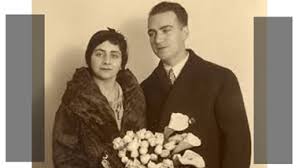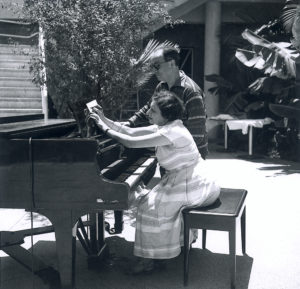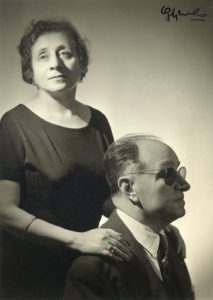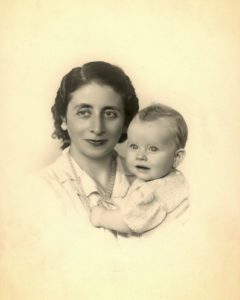Manuel de
Falla, also known as Manuel María de los

Dolores Falla y Matheu, is a
renowned Spanish composer of international acclaim. The Spanish composer
infused his compositions with unique idioms from native folk songs and
dance to create his music on nationalistic lines. His fusion of poetry,
simplicity, and passion represented the spirit of Spain in its purest
form. Just like Isaac Albeniz, Enrique Granados and Joaquín Turina,
Falla is deemed as one of Spain's most important musicians who
contributed humongously the classical music of the first half of the
20th century. Manuel wrote several kinds of compositions including music
for ballet, opera, chamber music, Spanish songs, piano music and
zarzuelas. One of the most celebrated figures of Spanish music, Manuel
de Falla has composed many pieces, which are considered as masterpieces
of sorts. Noches en los jardines de Espana" ("Nights in the Gardens of
Spain") is one of his major works of art. Also known for his ballet "El
Amor brujo" (Love, the Magician) and opera "La vida breve" (The Short
Life), Manuel de Falla really stands as a distinguished composer.
Manuel de Falla’s Childhood and Early Life
Manuel María de los Dolores Falla y Matheu was
born on 23 November 1876 in the family home (3, Plaza de Mina) to José
María Falla y Franco and María Jesús Matheu y Zabala. His early music
teachers were his mother and grandfather. At the age of nine, he began
his first piano lessons with Eloísa Galluzo. His relationship with
Eloísa Galluzo soon ended after she chose to become a nun at the
convent, Sisters of Charity. Then in 1889, Manuel went on to learn piano
with Alejandro Odero, and harmony and counterpoint with Enrique Broca.
He became interested in music and journalism and along with his friends,
he created the literary magazine, “El Burlón”. At the age of 14, he
displayed an aptitude for theatre, literature and painting and went
about to create another magazine, “El Cascabel”, for which he was the
"contributor" and, later, the "editor". At the age of 17, Manuel
channeled his artistic tendencies towards music. He had frequent trips
to Madrid in 1896, where he studied piano with José Tragó at the Escuela
Nacional de Música y Declamación.
Beginning Of A Musical Career
In 1897, Falla composed “melodía” for cello and
piano. His work was dedicated to Salvador Viniegra, in whose house Falla
participated in performances of chamber music. As an external pupil of
the Escuela Nacional de Música y Declamacíon in 1898, Falla passed with a
distinction the first three years of music theory and the first five
years of the piano course. He composed the Scherzo in C minor. By
unanimous agreement, he won the first prize in piano at his institute
“Escuela Nacional de Música y Declamación”, and he concluded his
official studies in 1899. That same year he premiered his first works
“Romanza para violonchelo y piano”, “Nocturno para piano, Melodía para
violonchelo y piano”, “Serenata andaluza para violín y piano”, and
“Cuarteto en Sol y Mireya”. In 1900, he composed Canción for the piano
and some other pieces for voice and for piano. He also premiered
“Serenata andaluza” and “Vals-Capricho” for piano and because of his
family's unstable financial situation; he began to give piano lessons.
Fallas’ first attempts at zarzuela, which include “La Juana y la Petra o
La casa de tócame Roque”, date from this period. In 1901, he met Felipe
Pedrell and composed “Cortejo de gnomos” and “Serenata”, both for
piano. At the same time, he was working on the zarzuelas “Los amores de
la Inés” and “Limosna de amor”. He then met the composer Joaquín Turina
and saw his pieces “Vals-Capricho” and “Serenata andaluza” being
published by the Society of Authors.
The composition of the “Allegro de concierto”
was started in 1903 and was submitted to a competition organized by the
Madrid Conservatoire. Enrique Granados eventually won the first prize,
but the Society of Authors published “Tus ojillos negros” and
“Nocturno”. Falla collaborated with Amadeo Vives on three zarzuelas of
which only fragments survive. In 1904, the Real Academia de Bellas Artes
de San Fernando announced a competition for a new "Spanish opera in one
act". Falla decided to enter the competition and hence began to work on
“La vida breve”. He won the first prize for this composition. In April
1905, he won another piano competition organized by the Ortiz y Cussó
Company. His “Allegro de concierto” was premiered at the Ateneo in
Madrid. Manuel was encouraged by the composer Joaquín Turina to move to
Paris and showcase his talents.
Musical Stint in Paris
Manuel de Falla travelled around France,Belgium,
Switzerland and Germany as a pianist to a touring theatre company
performing André Wormser's L'Enfant prodigue. He met a number of
composers who had an influence on his style, including the
impressionists Maurice Ravel, Claude Debussy and Paul Dukas. In 1908, he
obtained a grant from the Spanish King Alfonso XIII to remain in Paris
and finish “Pièces espagnoles”. He toured the north of Spain as the
third member of a trio with violinist Antonio Fernández Bordas and
cellist Víctor Mirecki and completed “Con afectos de júbilo y gozo”. The
dramatist Paul Milliet translated the libretto of “La vida breve” into
French, to have it performed in France. In 1910, Falla had his first
encounter with Igor Stravinsky and he met Georges Jean-Aubry, Ignacio
Zuloaga, Joaquín Nin and Wanda Landowska. On his first visit to London
in 1911, he gave a recital in March. Then in 1912, he travelled to
Switzerland and Italy and in Milan, Tito Ricordi negotiated him for his
publication of La vida breve. In 1913, La vida breve was premiered at
the Municipal Casino in Nice and later that year, his work was given
“répétition générale” before the press and the public, at the Théâtre
National de l'Opéra-Comique in Paris. Max Eschig published the score and
became Falla's publisher. After the outbreak of World War I in 1914,
Falla returned to Spain and settled in Madrid. It was at this stage that
Falla entered into his mature creative period.
Return to Madrid
Manuel de Falla returned to Madrid at the
outbreak of the World War 1. The Ateneo de Madrid, a private cultural
association, paid homage to Joaquín Turina and Manuel de Falla in 1915.
In the same year, he joined María Lejárraga (wife of Gregorio Martínez
Sierra) on a trip to Granada Ronda, Algeciras and Cádiz. On his brief
trip to Cau Ferrat in Sitges, he worked intensively on his well-known
nocturne for piano and orchestra “Noches en los jardines de España”. In
1916, The Revista Musical Hispano-Americana published Falla's article
"Enrique Granados: Evocación de su obra", and the newspaper La Tribuna
published his "El gran músico de nuestro tiempo: Igor Stravinsky".
During the spring and summer of this year, he gave concerts in Seville,
Cádiz and Granada. The Revista Musical Hispano-Americana published a
further article by Falla in its December issue: "Introducción al estudio
de la música nueva". Fallas first performance of a version of “El amor
brujo” for small orchestra was given in 1917. During this year he also
wrote the prologue to Joaquín Turina's “Enciclopedia abreviada de
Música”, and published "Nuesta música" in the June issue. In 1918, he
worked on the comic opera Fuego fatuo, to a libretto by María Lejárraga.
In April that year, he delivered a speech at a function at the Ateneo
de Madrid to pay tribute to a French composer. The Princess de Polignac
commissioned him to write a work for her salon in Paris, and Falla
visioned the idea for El retablo de maese Pedro. In 1919, Manuel’s
parents died. This really shook him. However, in the same year, his
concert version of El sombrero de tres picos, a ballet, was premiered in
London with choreography by Léonide Massine and sets and costumes by
Pablo Picasso. This was amongst one of his most renowned works. In 1919
itself, Manuel visited Granada with his sister María del Carmen and
Vázquez Díaz and his wife, to attend a tribute being paid in his honour
by the Centro Artístico.
Stay at Granada
From 1921 to 1939, Manuel lived in Granada.
Falla became closely involved with the cultural life of Granada,
associating with personalities such as Miguel Cerón, Fernando de los
Ríos, Hermenegildo Lanz, Manuel Ángeles Ortiz and, above all, Federico
García Lorca. Here he organized the “Concurso de cante Jondo” in 1922.
He wrote the puppet opera “El Retable De Maese Pedro” and a concerto
titled Harpsichord Concerto. Both of these works were written with Wanda
Landowska in mind. In Granada, Falla began work on the large-scale
orchestral cantata “Atlàntida”. He considered Atlàntida to be the most
important of his works. In 1924, Falla along with Ángel Barrios was
unanimously elected permanent member of the Real Academia de Bellas
Artes de Granada. He also completed ‘Psyché’, a setting of a poem by
Georges Jean-Aubry. In the same year, he was named an honorary member of
the Real Academia Hispano-Americana de Ciencias y Artes de Cádiz. On
Falla's initiative, the Orquesta Bética de Cámara was founded in Seville
too. In 1927, on Fallas fiftieth birthday tributes continued and the
Orquesta Bética de Cámara hosted concerts at the Coliseo Olympia in
Granada. While in Granada, Falla received a lot of recognition for his
work. However, by 1937, due to his fragile state of health, he was
confined to his house. In 1939, he moved from Granada to Barcelona with
his sister and then from Barcelona he embarked to Argentina to conduct a
series of four concerts in the Teatro Colón in Buenos Aires.
His Last Years
Falla continued to work on Atlàntida after
moving to Argentina in 1939. He settled initially in Villa Carlos Paz,
then, later, in Villa del Lago. He conducted a concert—Orquesta
Sinfónica de Córdoba in aid of the victims of floods in the capital and
received the Gran Cruz de la Orden Civil de Alfonso X el Sabio. Later in
1940, he conducted two concerts on Radio "El Mundo". Manuel’s health
had seriously started deteriorating and at the beginning of 1942, he
moved to the chalet "Los Espinillos", near Alta Gracia in the province
of Cordoba. This became his final residence. He rejected an invitation
from the Spanish government to return to Spain. In spite of ill health,
he continued to work on Atlántida and by 1945, he began to transcribe
final versions of some sections of the work.
Personal Life
Manuel de Falla never married and had no
children. His relationship with women did not last long and there were
even rumors of homosexuality and misogynistic tendencies. His public
image was ascetic and saint like.
Death
On 14 November 1946, nine days before his
seventieth birthday, Falla suffered a heart attack and died in his sleep
at "Los Espinillos". The funeral took place in Córdoba Cathedral and in
December, his sister María del Carmen embarked for Spain, with his
remains. His body was finally entombed in the cathedral crypt of his
native city.

 Joaquin Rodrigo: Cantico de la esposa (Song of the Bride)
Joaquin Rodrigo: Cantico de la esposa (Song of the Bride) Eventually Rodrigo was awarded the “Conde de Cartagena Scholarhip” allowing him to join his wife in Paris. Victoria gave up her career as a pianist to devote all her efforts to the works of her husband, collaborating with him in musical and literary matters. When the scholarship was initially renewed, the couple decided to spend some time in Germany. However, with the outbreak of the Spanish Civil War in 1936, the scholarship fund was no longer available and they had to find refuge at the Institute for the Blind in Freiburg. Three years of extended hardship finally came to an end in 1939, and Rodrigo completed his most famous composition, the Conceirto de Aranjuez. Victoria writes that shorty after the premiere of the concerto on 9 November 1940, their daughter Cecilia was born. “And what about her eyes?” Victoria asked weakly. “They’re magnificent, blue.”
Eventually Rodrigo was awarded the “Conde de Cartagena Scholarhip” allowing him to join his wife in Paris. Victoria gave up her career as a pianist to devote all her efforts to the works of her husband, collaborating with him in musical and literary matters. When the scholarship was initially renewed, the couple decided to spend some time in Germany. However, with the outbreak of the Spanish Civil War in 1936, the scholarship fund was no longer available and they had to find refuge at the Institute for the Blind in Freiburg. Three years of extended hardship finally came to an end in 1939, and Rodrigo completed his most famous composition, the Conceirto de Aranjuez. Victoria writes that shorty after the premiere of the concerto on 9 November 1940, their daughter Cecilia was born. “And what about her eyes?” Victoria asked weakly. “They’re magnificent, blue.”
